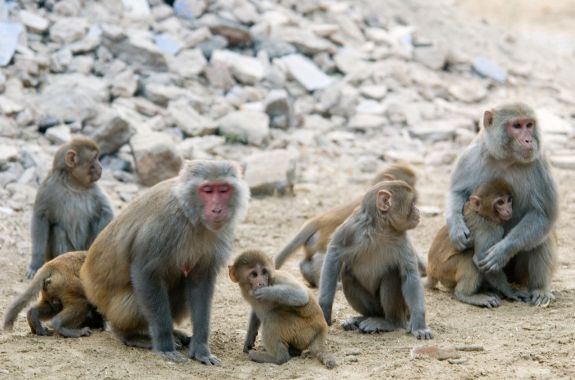Radio
Listen to Science Friday live on Fridays from 2-4 p.m. ET
April 4, 2025
Food allergies are on the rise. For kids with less severe peanut allergies, one potential treatment could be found in the grocery aisle. Plus, what happens when AI moves beyond convincing chatbots and custom image generators to something that matches—or outperforms—humans? And, several companies are competing for NASA contracts to build commercial space stations.
Medusa’s Gaze and Vampire’s Bite
Think monsters are make-believe? In his new book, science journalist Matt Kaplan writes of real-life zombies in Haiti, and how rabies infection could explain the vampire’s aversion to garlic and sunlight.
Scared to Death… Literally
An earthquake, terrorist attack, or even a hole-in-one can cause a heart-stopping surge of adrenaline.
Learning From the Things That Annoy Us
Why you have to overcome irritation in order to examine it.
How One Guy Raised $1.3 Million for a Tesla Museum
The money will be used to turn Nikola Tesla’s final laboratory into a museum.
When Infections ‘Spillover’
Will the next human pandemic start in an animal? Writer David Quammen talks about Ebola, HIV and other diseases that ‘spillover’ from animals to humans.
New Program Spurs Solar Development on Public Land
The plan identifies 285,000 acres of public land in six Western states for solar energy projects.
Spacecraft Records ‘Chorus’ of Space Sounds
What do Earth’s radiation belts sound like? Wonder no more.
Winter Weather Predictions—Science or Folklore?
The Old Farmer’s Almanac predicts winter weather months in advance. But how scientific are those predictions? And are NOAA and Accuweather any better at the art of seasonal forecasting?
Making Sense of Presidential Polls
Feeling a little overwhelmed by all the presidential polls? A neuroscientist and statistician talk about how to make sense of the election—and why not all votes are created equal.
Scientists in the Dark Over Birth of the Moon
Two new studies present very different ideas about how the Moon was formed—a riddle that one scientist says may never be solved.

